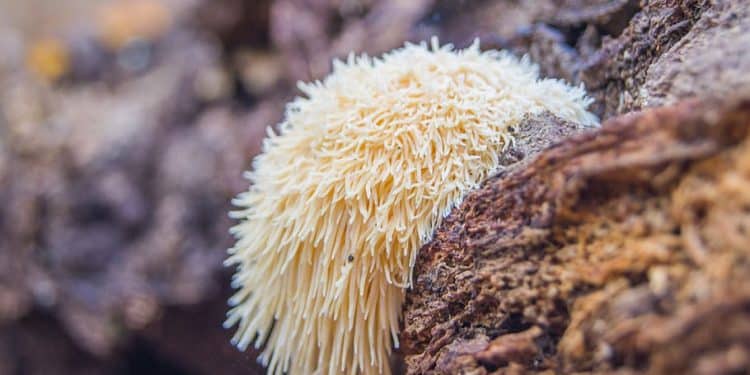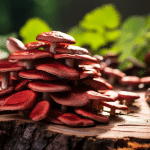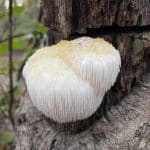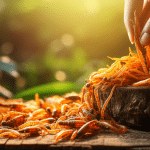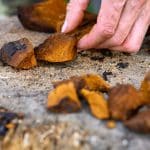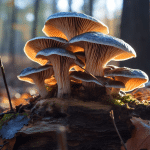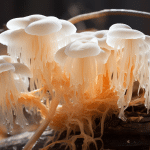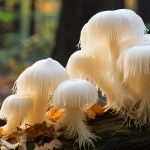Mycologists assert that lion’s mane mycelium possesses unique properties significant to both ecological systems and human health. Their research delves into the intricacies of this organism, revealing its potential in neuroregenerative medicine and as a culinary delicacy. As they unravel the complexities of its growth patterns and chemical composition, lion’s mane mycelium emerges as a focal point for scientific inquiry and practical application.
Unveiling Lion’s Mane Mycelium and Mental Health
Mycologists have delved into the cognitive benefits of Lion’s Mane mycelium. Research suggests it may support brain health. Studies focus on its potential to foster neurogenesis, the growth of new neurons in the brain. This process is crucial for maintaining mental clarity and cognitive function as one ages.
The consumption of Lion’s Mane has been linked to mood improvement. It contains compounds that stimulate the production of nerve growth factor (NGF). NGF is vital for neuron survival and function. Enhanced NGF levels could lead to better mental health outcomes. Potential cognitive benefits:
-
Supports neurogenesis;
-
Improves mental clarity;
-
Enhances mood.
Research also reviews how this distinctive fungus affects memory and concentration. The findings suggest a discernible health benefit, although more studies are needed. In another aspect, scientists explore how Lion’s Mane might combat neurological disorders such as Alzheimer’s disease or dementia. Early results show promise but require further investigation before definitive statements can be made about its efficacy.
Key Components of Lion’s Mane Mycelium
Mycologists have identified hericenones and erinacines as key bioactive compounds in lion’s mane mycelium. These substances are known for their potential to stimulate the growth of brain cells. They may play a role in the mushroom’s reported cognitive benefits. The research on these compounds is ongoing, but early findings suggest they could be crucial to understanding how lion’s mane supports mental health.
Polysaccharides found within the mycelium also garner attention for their immune-supporting properties. These long-chain carbohydrates act as prebiotics in the gut, fostering a healthy microbiome which is essential for robust immunity. This component underscores why many seek out host defense products containing lion’s mane mycelium.
The antioxidant properties present in this fungus contribute to its health-boosting profile too. Antioxidants help combat oxidative stress, which damages cells and has been linked with various diseases including neurodegenerative disorders. By reducing oxidative stress, the antioxidants within lion’s mane mycelium may offer protective effects against such conditions.
-
Bioactive Compounds:
-
Hericenones;
-
Erinacines.
-
Immune Support:
-
Polysaccharides;
-
Antioxidant Properties.
It becomes clear that mushroom mycelium like that of lion’s mane contains complex elements beneficial to human health beyond just mental wellness.
Lion’s Mane Mycelium in Traditional and Modern Medicine
Historically, Eastern medicinal practices have revered the lion’s mane species for its health benefits. Mycologists note that this fungus was used to treat a variety of ailments. It was often grown on logs or grain substrates like rice. These traditional methods span back hundreds of years, emphasizing longevity in therapeutic use.
In modern times, researchers focus on lion’s mane mycelium for its potential neurological benefits. Current studies investigate how these mushroom fibers might support brain health. They are exploring it as an adjunct therapy for cognitive disorders such as dementia and Alzheimer’s disease. The scientific community is intrigued by the possibility that compounds within the mycelium could enhance nerve growth or reduce symptoms of mental decline.
-
Pros:
-
May improve cognitive function;
-
Could help regenerate nerve cells;
-
Has a long history of medicinal use.
-
Cons:
-
More research needed to confirm efficacy;
-
Variability in potency depending on growing conditions
Mycologists also consider other uses beyond medicine. Some view lion’s mane mycelium as a valuable dietary supplement thanks to its nutritional profile and potential health properties. As an ingredient, it finds itself not only in capsules but also integrated into various food products without filler substances.
Forms of Lion’s Mane Supplementation
Lion’s mane mycelium is available in various forms for supplementation. Consumers can find tinctures, which are liquid extracts, often used for their ease of absorption and quick action. Another popular form is teas. These provide a comforting way to consume the supplement while also enjoying a warm beverage. There are extracts in powder or capsule form that concentrate the active ingredients, making them a potent option.
Mycologists compare whole fruiting body supplements to mycelium-based products by examining their bioactive components. The whole fruiting body contains all parts of the mushroom and is traditionally believed to have comprehensive benefits. In contrast, mycelium-based products focus on the root-like structure of the fungus where specific compounds such as polysaccharides are abundant.
The choice between these forms often comes down to personal preference and lifestyle considerations. For those seeking convenience, capsules may be ideal due to their portability and measured dosage.
In choosing between whole fruiting bodies or mycelium-based supplements, one must consider efficacy and desired outcomes from supplementation. Mycologists note that some consumers prefer whole fruiting body supplements for their broad spectrum of nutrients while others opt for mycelium-based products due to studies suggesting concentrated levels of beneficial compounds like beta-glucans.
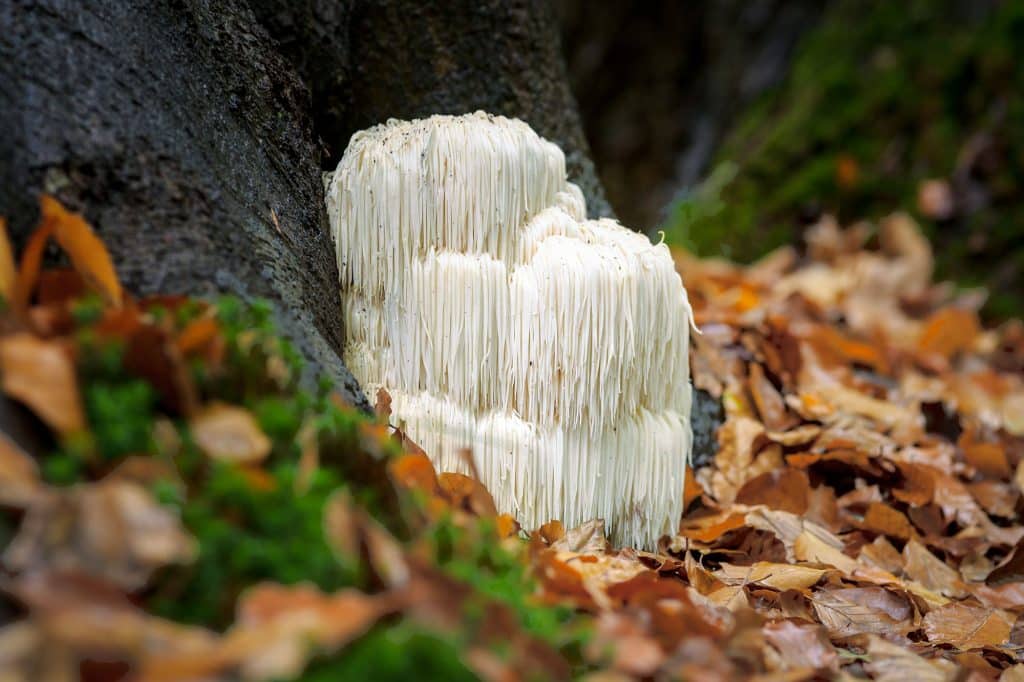
Benefits of Lion’s Mane Mycelium Powders vs. Capsules
Mycologists often explore the ease of dosage measurement in various forms of supplements. With lion’s mane mycelium, powders offer a distinct advantage. Users can measure out precise amounts tailored to their needs. This flexibility is less evident with capsules, which come in pre-measured doses.
The cost-effectiveness between powder and capsule forms also varies significantly. Generally, buying bulk powders may lead to savings over time compared to the higher manufacturing costs associated with capsules.
In terms of absorption rates and bioavailability, there is a debate among experts. Some suggest that powders might absorb faster as they mix readily with liquids and begin digestion sooner. However, others argue that encapsulated supplements protect active ingredients until they reach the gut where absorption occurs.
Cultivation Techniques for Lion’s Mane Mycelium
Mycologists employ lab-based inoculation methods to ensure purity in lion’s mane mycelium cultures. They start by sterilizing substrates and equipment to prevent contamination. Pure culture spores or tissue samples are then introduced into a nutrient-rich medium under controlled conditions. This process, known as inoculation, is critical for the development of high-quality mycelium.
The growth quality of lion’s mane mycelium is influenced by several environmental factors. Temperature, humidity, light exposure, and airflow must be carefully monitored and adjusted. Optimal temperatures range from 21°C to 24°C (70°F to 75°F) with relative humidity levels between 85% to 90%. Mycologists also limit light exposure as it can affect the growth patterns of the mycelium.
Lion’s mane mycelium shows preferences that enhance its development:
-
Hardwood sawdust provides essential nutrients;
-
Grains like rye or wheat act as effective supplements;
-
Straw offers an inexpensive option but may require additional nutrients.
These materials are often pasteurized or sterilized before use to reduce competition from other organisms.
Plug and Sawdust Spawn in Lion’s Mane Farming
Mycologists often debate the efficiency of plug versus sawdust spawn for cultivating lion’s mane mycelium. Plug spawn involves inserting small dowels inoculated with mycelium into drilled holes in logs or stumps. Meanwhile, sawdust spawn is spread throughout a substrate, typically hardwood sawdust mixed with nutrients. Each method has its unique advantages.
For small-scale operations, plug spawn is less labor-intensive and requires minimal equipment. It offers a more natural approach to cultivation as it mimics the mushroom’s growth in the wild. However, this method can be slower than using sawdust spawn and may result in lower yields per log. On the other hand, commercial cultivators favor sawdust spawn due to its higher efficiency and scalability. Mycologists can inoculate large batches of substrate at once, leading to faster colonization by the mycelium.
The process from spawn inoculation to mature mycelium varies between methods as well. With plugs, growers wait several months before they see signs of full colonization through cracks or under bark layers on logs or stumps. In contrast, sawdust spawns colonize substrates within weeks under optimal conditions; this rapid growth allows for quicker cycles of harvest.
Best Practices for Growing Lion’s Mane Mycelium
Mycologists emphasize humidity control as crucial for lion’s mane mycelium. They suggest maintaining humidity levels between 85% to 95%. This range helps prevent the substrate from drying out and supports healthy mycelial growth. To achieve this, growers often use humidifiers or misting systems in their cultivation spaces.
Temperature also plays a significant role in cultivating lion’s mane mycelium. Experts recommend keeping the environment at a consistent temperature ranging from 21°C to 24°C (70°F to 75°F) during colonization of the substrate. Once fruiting begins, a slight decrease to around 18°C – 20°C (65°F -68°F) can promote better mushroom development. Monitoring devices are essential tools that help maintain these conditions with precision.
To optimize nutrient availability, they advise using organic substrates such as:
-
Hardwood sawdust;
-
Wheat bran;
-
Rice bran;
-
Oat bran.
These substrates are rich in cellulose and lignin, which are ideal food sources for lion’s mane mycelium. Some cultivators add supplements like gypsum to enhance growth further.
Closing Thoughts
Mycologists have illuminated the significant role of lion’s mane mycelium in both mental health and traditional medicine, highlighting its key components and therapeutic potential. The exploration of various forms of supplementation, cultivation techniques, and best practices for growing lion’s mane mycelium has provided valuable insights. This comprehensive examination underscores the importance of lion’s mane mycelium in the realm of natural remedies and its promising future in healthcare.
You can find our favorite capsules, powders, and tincture’s on the following pages of our website and learn more about each individually:
Our Favorite Lion’s Mane Supplements
Our Favorite Lion’s Mane Powders
Our Favorite Lion’s Mane Tinctures
Our Favorite Lion’s Mane Gummies
Additional Resources:
Lion’s Mane Mushroom Look-alikes
Learn More:
Mycelium vs Fruiting Body | What’s The Difference?
A Quick Guide to Cordyceps Mushrooms
Updated 10/11/2022
